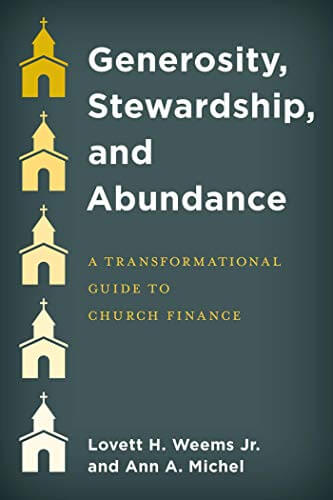There was a time when churches were reluctant to take an offering at their Christmas Eve services. The reasoning was that many people at those services would be those who rarely came to church, and the last thing the church wanted to do was to confirm their preconception that churches only care about money. But today, in many places Christmas Eve services rival Easter in attendance, and the Christmas Eve offering is often the largest of the year.
What has changed? Churches discovered that asking for money on Christmas Eve is actually appreciated by participants, including and perhaps especially those who rarely attend church — so long as the offering is for others and not the church’s operational expenses.
There is power in this message because there is power in the Gospel of Christ — if we can only remember it. It is not a new story, but for many churches it can become a fresh story for a world seeking satisfaction in all the wrong places.
This change in perspective offers the opportunity for the church to tell the story of the good that giving accomplishes, perhaps with accompanying slides. Visitors, who may be unaware that churches do good work in the community and the world, are often captivated by these stories. They welcome a chance to be a part of something bigger than themselves.
Christmas Eve offerings are even more significant when tied to a larger Advent and Christmas mission focus. Mike Slaughter, pastor of Ginghamsburg Church in Ohio, has galvanized his congregation around doing extraordinary things to help the people of Sudan. This has put him at the forefront of a growing group of pastors leading congregations to find new life by helping some of the world’s most vulnerable people.
Several years ago, Mike reminded his congregation that “Christmas is Not Your Birthday.” He named the irony of Christians whose self indulgent holiday celebrations make a mockery of the One whose birthday we honor. He challenged members to give as much for others as they spend on themselves. John Wesley once said Christians are called to return money in excess of basic necessities to God “through the poor,” whom God “had appointed to receive it.”
That is precisely what Mike and the people of Ginghamsburg did. In 2004, the slogan “Christmas is not your birthday; it’s Jesus’ birthday” rallied the church around the priorities of Jesus’ ministry. That year they gave $300,000. These funds, along with generous giving in subsequent years, led to a partnership with the United Methodist Committee on Relief and support from over a hundred other churches, schools, and businesses. The Sudan Project, as the effort was subsequently named, has implemented a sustainable agriculture program, promoted child protection and education, and provided clean water for thousands in one of the poorest areas of the world. By mid-2011, the project had invested over 5 million dollars in a more abundant and hopeful life for people with few resources of their own.
Mike’s book, Christmas is Not Your Birthday, tells a little about what his church has done. But primarily, it is a thoughtful reflection on a Christmas that takes seriously the words and life of Christ.
Another pastor, hearing the Ginghamsburg story, took courage in hand and preached his own “Christmas is Not Your Birthday” sermon. To this pastor’s surprise, when the sermon ended the congregation stood and applauded — the only time that had ever happened. There is power in this message because there is power in the Gospel of Christ — if we can only remember it. It is not a new story, but for many churches it can become a fresh story for a world seeking satisfaction in all the wrong places.
Christmas Is Not Your Birthday: Experience the Joy of Living and Giving like Jesus by Mike Slaughter is available from Cokesbury andAmazon.







